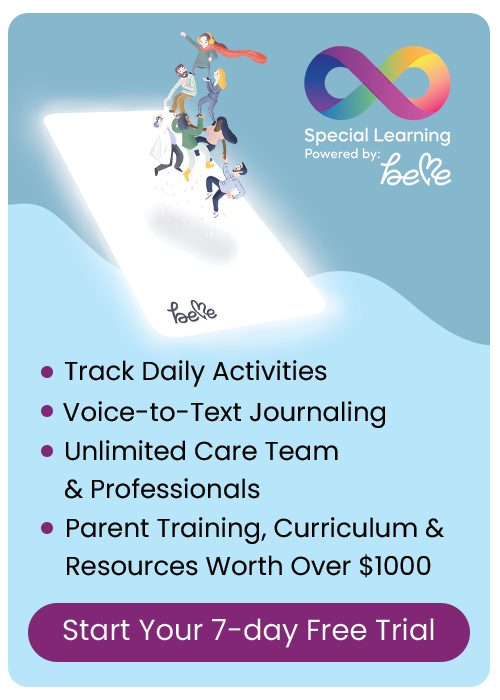Blog Categories
- ADHD
- Applied Behavior Analysis
- Autism Awareness
- Autism Service Providers
- Case Studies
- Dignosis
- Classroom Management
- Credentials
- Ethics
- Family Matters
- FAQs About LIVE Events
- Financial Planning
- Holiday Planning
- IEP's
- Panelists
- Private Equity in Autism & ABA Industry
- Psychopharmacology
- Sensory Processing Disorder
- Speech and Communication
- Subject Matter Experts
- Summer Planning
- Transition Planning
How to Advocate For Your Child’s Treatment Needs and Services
She has worked as a counselor in the Chemical Dependency field, a CPST worker with children/adolescents, a Functional Family Therapist (FFT) with adolescents and their families, a Psychotherapist with dually diagnosed adults and currently works as an LISW who provides case management services for parents of children with Autism.
Leslie graduated from the University of Cincinnati in Ohio with a Master’s in Social Work in June 2006 after completing a 1 year accelerated graduate program. She obtained her Bachelors Degree in Social Work from the University of Cincinnati in June 2005. She obtained her supervision designation in October 2010.
How to Advocate For Your Child’s Treatment Needs and Services
One of the most difficult situations parents of children with special needs face is how to obtain the needed services and/or proper care for their children. Parents are often unaware of their child’s rights or agency responsibilities in providing specific care. Many parents face school districts, service providers or state agencies on their own without help advocating for their children’s care. Additionally, those parents are often ill prepared for such meetings and, therefore, the children inevitably suffer from lack of services and/or underdeveloped plans for their treatment/care. The following are some basic steps or suggestions on how you, as a parent, prepare for important meetings, advocate for services, and ensure your child’s needs are met.
Parent Responsibilities
A parent is a pivotal member of his/her child’s treatment team and is his/her child’s main case manager.
Parents sometimes underestimate their role and take a back seat when it comes to their child’s treatment plan. A parent may not be present in important treatment meetings or offer little input when planning treatment goals, leaving service coordinators and treatment providers to develop a plan for that child’s care based on incomplete or inaccurate information. Many times it’s not that the parent is unwilling to cooperate, but rather lacks sufficient understanding of his/her child’s needs, abilities, deficits, and what services are available. The following is a short list of steps to ensure that the parent is a vital member of his/her child’s treatment team and able to advocate for the best care in various settings:
Increase Your Knowledge
1. Know your child more
– Learn your child’s needs, difficulties, triggers, deficits, behaviors and skill (academic, behavioral, communication, daily living…etc.)
– Learn where your child’s skills are in comparison to his/her age group
– Learn about your child’s learning style and discover the best ways to work with your child to help him/her learn
– Keep a journal about your child and bring it to important meetings for easy and accurate reference of your child’s behaviors, activities, therapies, etc. (Parents often have trouble recalling information during meetings.)
2. Study more about the providers that work with your child
– Ask and study about the treatment these providers offer, how they provide care, and their rules and policies, etc.
– Discuss what services they can and cannot provide when it comes to your child’s individualized treatment goals
– Ask for a clarification when you do not understand a term or two about your child’s treatment
– Get to know the members of your child’s healthcare team and keep an open communication line with them
3. Do some research on treatments and be knowledgeable of what approaches are best for your child’s needs
– Ensure that the treatment being given to your child is appropriate for your child’s needs
– Ask questions about how or why it works
– Learn what you can about your child’s therapies and ask if you can continue such therapies at home
4. Be Knowledgeable and aware of your child’s school system
– Familiarize yourself with the different rules and regulations
– School systems are typically legally bound to provide certain services. Learn what the law says about what your child’s school system must provide and how it’s to be provided
– Learn what your options are if the school system is unable to provide the needed services or level of care for your child
– Identify what information you need to obtain and provide the school to ensure your child’s admission
Be Present
1. Attend meetings whenever possible
2. Provide supplemental information for developing goals or when discussing changes in care
3. Always keep an open communication line with your child’s healthcare providers
4. Make your concerns, wishes, questions and/or your support be known
5. Be approachable, cooperative and adaptable. You do not want the people working with your child to hesitate contacting you or meeting with you.
Don’t Take a Back Seat in your child’s journey to recovery
1. If you have ideas or suggestions share them
2. Help develop the goals for your child
3. Be realistic with your expectations in order to help your child be successful
4. Do not hesitate to call for a meeting with your child’s healthcare team or ask for progress reports
RECOMMENDED PRODUCTS
Asking for Help Boy Visual Schedule
Adolescent’s Use of Technology to Cope with the Challenges of Autism





